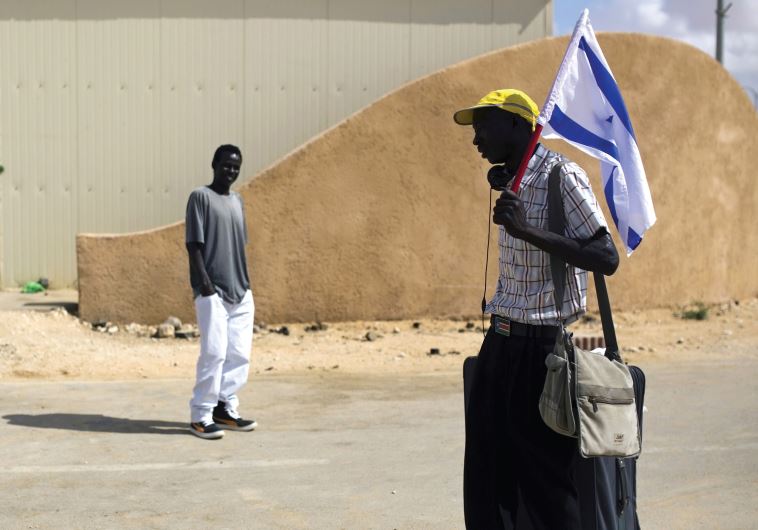Knesset lowers maximum migrant detention in Holot to 12 months
The change follows the Supreme Court’s strike down of a 20-month maximum that had been allowed under a previous amendment.
 An African migrant holds an Israeli flag after being released from the Holot detention center in the Negev
An African migrant holds an Israeli flag after being released from the Holot detention center in the Negev